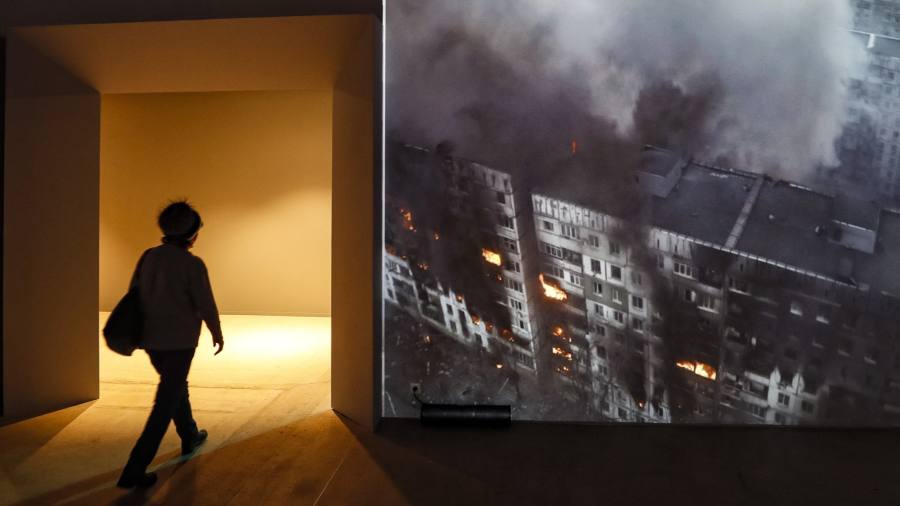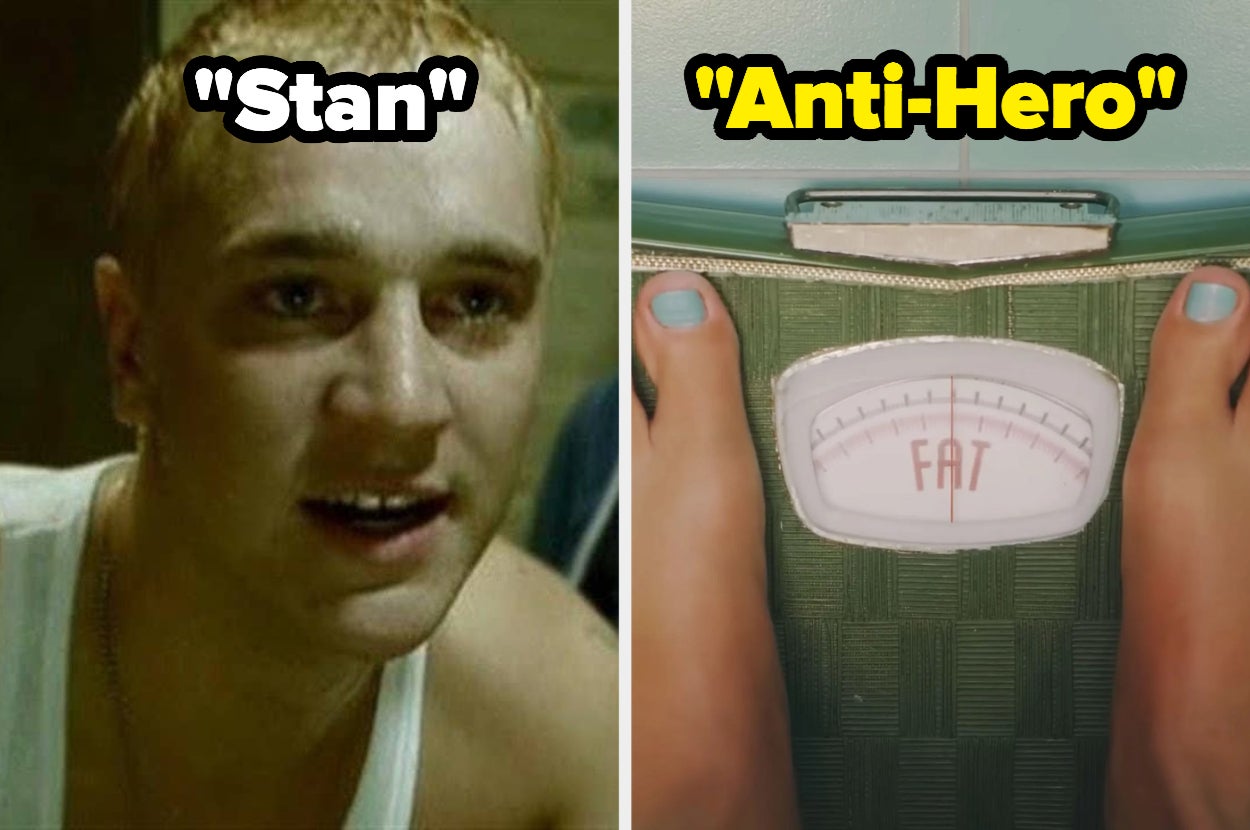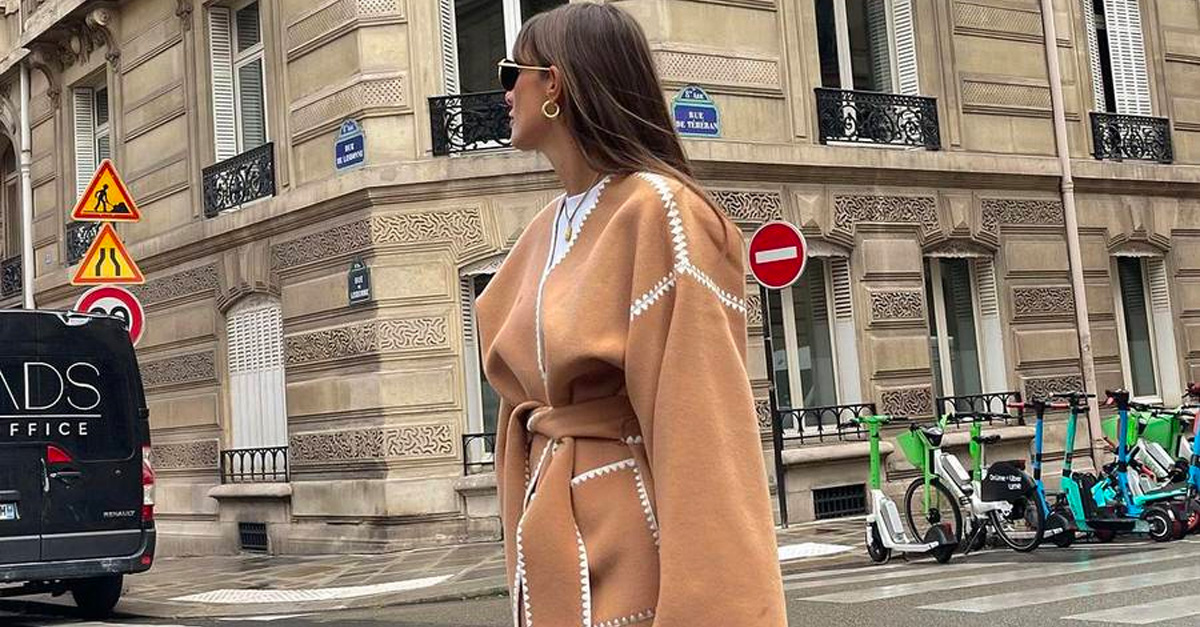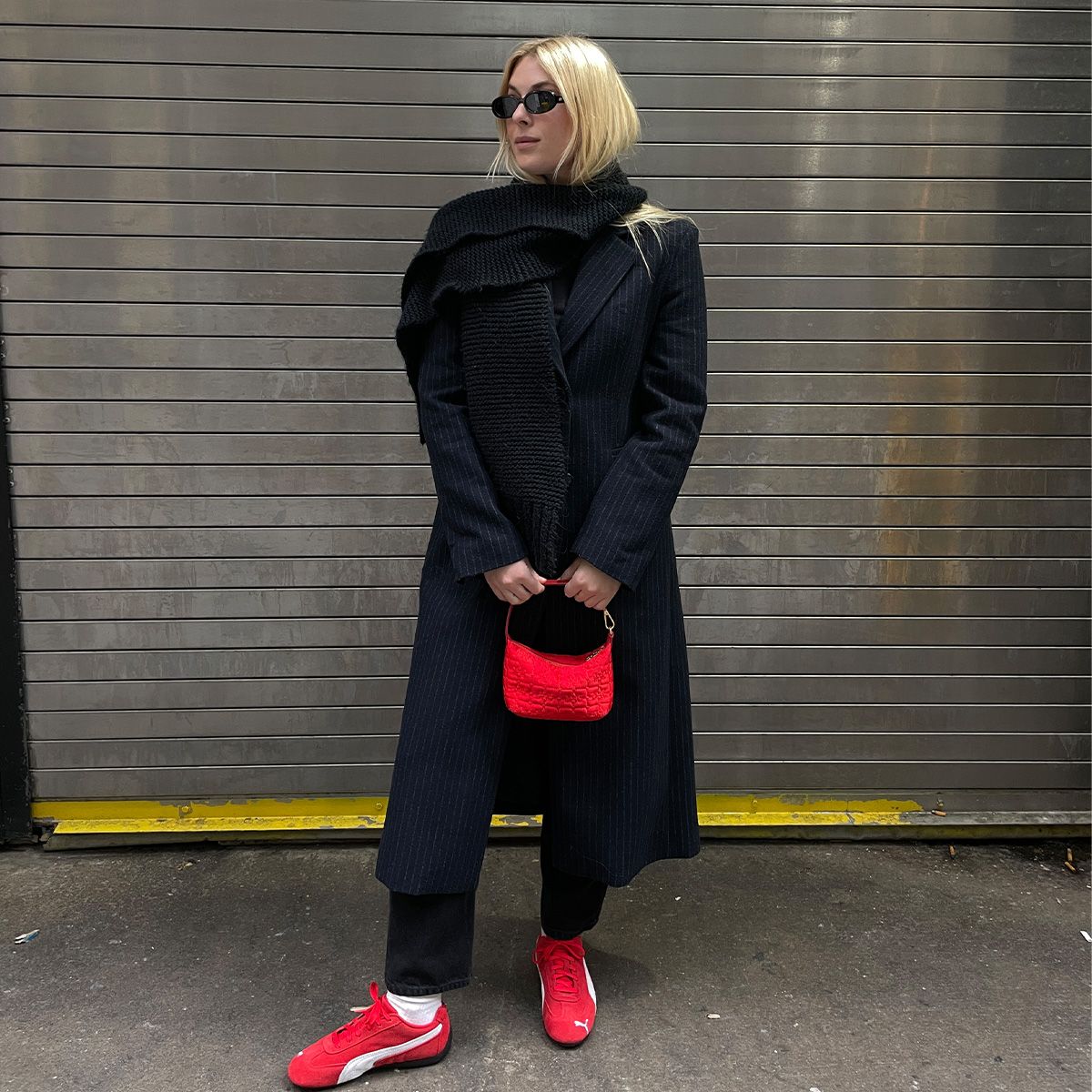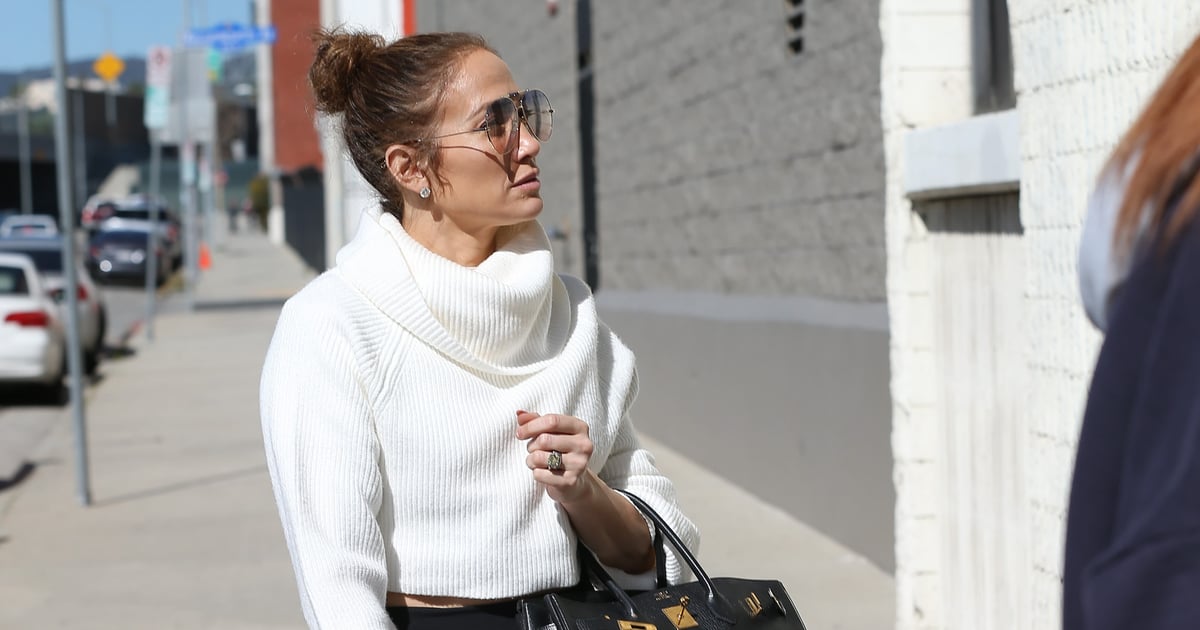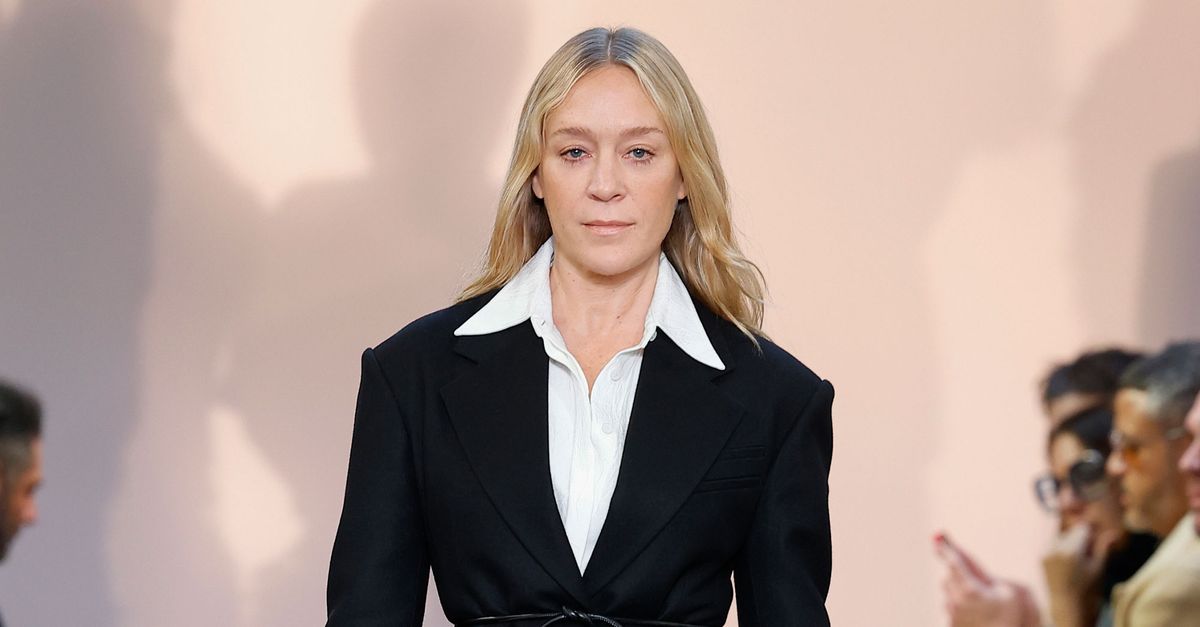On a snowy afternoon in Moscow this week, a trickle of people entered a vast hall under the Kremlin walls, past armed riot police, to see an exhibition on what Russia still describes as a “special military operation” in Ukraine after nine months of war.
Between pictures of bombed-out Ukrainian cities and the bloodied corpses of civilians presented as heroic victims of the conflict, visitors are shown a triumphant video about Russia’s recent annexation of four Ukrainian regions.
Except, since the show opened earlier this month, Russia has withdrawn from the capital of one of them, Kherson, leaving behind billboards proclaiming “Russia is here forever”. The city had fallen under Russian occupation in March, in the early days of Vladimir Putin’s full-scale invasion.
The propaganda display left Katya, a middle-aged Moscow schoolteacher, who had brought along a group of 11-year-old pupils, with more questions than answers. She said she wondered what all the casualties were for.
“No one understands anything,” she said as she left the exhibition hall, past anti-riot guards. “First we came up to Kyiv, and then we left — and how many people were killed? Then we took Kherson, and then we left it again. And how many people were killed?”

“Even military men,” she said, referring to veterans of earlier Russian wars in her family, “they know how war works. But even they don’t understand this strategy.”
For many in Moscow, the retreat from Kherson has sown confusion and raised questions about the war’s costs to Russia. Most of all, the news has added to the general, simmering anxiety people have felt since late September, when Putin announced a military draft and brought the war directly into Russian homes for the first time.
“Everyone is in an unstable state, nervous, anxious,” Katya said of her friends, colleagues and family. “Everyone is depressed.”
Though life continues much as ever in Moscow, with cafés and restaurants bustling, the latest survey from the independent Levada Centre pollster, published last month, found that 88 per cent of people were “worried” or “very worried” about developments in Ukraine. Only 36 per cent of Russians said that they believed the country should continue fighting, while a majority thought it was time for peace talks.
However, if Russians are increasingly concerned about the war, they appear to feel little attachment to the newly occupied territories that Moscow annexed to great fanfare after holding sham referendums there. As a result, many have reacted with indifference to the loss of a place such as Kherson.
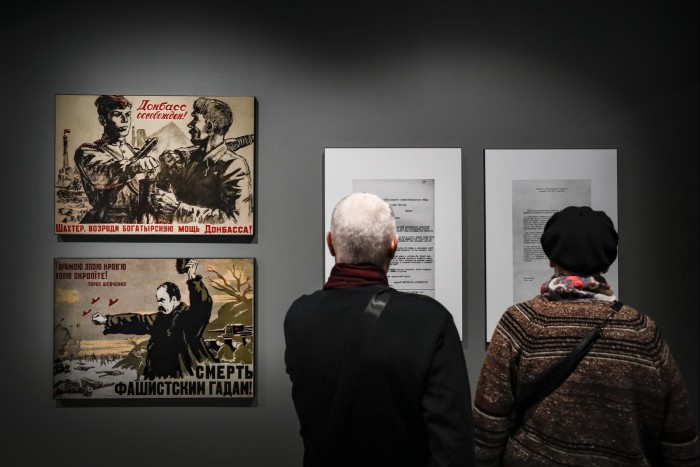
“Of course, it’s pretty amazing how easily the Russian authorities said goodbye to Kherson,” Tatiana Stanovaya, founder of political consultancy R. Politik, wrote in social media post. “And the people don’t seem to be clinging on to the new ‘territories’ either.”
She pointed to a recent Levada poll that asked Russians to name major events they remembered from the news. Just 9 per cent recalled the referendums and annexation — in which their country claimed to have expanded by over 135,000 sq km — even though the event occurred as the survey was being conducted.
The Kherson retreat will not affect Putin’s ratings, the Levada pollster’s Lev Gudkov told the Russian-language RTVi broadcaster. Over time, it may erode faith in the president as a leader, he said, but for now, “censorship and propaganda will work to soften the meaning of this event and the severity of this local defeat”.
State media explained the retreat as a difficult but necessary decision, taken to save the lives of thousands of Russian soldiers. Commentators in the ultranationalist, pro-war camp took issue with the decision and this explanation, but the critiques by this minority have been muted lately, following stern warnings from the Kremlin.
Still, discontent simmers privately. A former senior official said losing Kherson only six weeks after Putin declared it part of Russia indicated the Kremlin’s lack of strategic planning. “They are just completely mishandling this. They can’t think two steps ahead. It’s completely reactive,” said the former official, speaking anonymously given the risks in articulating public criticism. “It’s completely humiliating — this was the only provincial centre Russia had, and they surrendered it in a month and a half.”
The vast majority of Russians would only truly care if Ukraine attempted to regain control of Crimea, which Moscow annexed from Kyiv in 2014, said Alexei Venediktov, longtime editor of the Echo of Moscow radio station. The peninsula has developed an almost mythical status among Russians, particularly as a beloved holiday spot. To the majority, “Crimea is sacred”, Venediktov said.
But other regions and cities to which Russia has laid claim carry little emotive resonance. “Donetsk, Luhansk, some sort of Mykolayiv, Kherson, Zaporizhzhia — where even are they?” Venediktov said.
There is, however, a sense of upset among Moscow’s elites, said the journalist, who remains in contact with many people in positions of power despite the forced closure of his radio station in March.
The top political and business circles dislike turbulence, he said, and are perturbed by the way military setbacks are bringing hardline and fringe characters, such as Chechen warlord Ramzan Kadyrov and paramilitary leader Evgeny Prigozhin, to the political fore. “If everything froze in place right now . . . they would be pleased.”
But few around Putin dare to speak out against the invasion, said a Russian oligarch under western sanctions. “The technocrats have no instruments. It’s a very stable situation. Security is under Putin’s control. He makes his bodyguards ministers and governors. And the shift in public opinion is not happening. Millions of people who are against the war have left.”
Entering the exhibition hall next to Red Square, visitors are greeted with an immersive, 360-degree video projection of the skyline of the Ukrainian city of Mariupol. Smoke rises from destroyed apartment blocks in the city, which experienced the heaviest Russian shelling of the war, killing thousands of people.
Subsequent rooms rewrite the history of Ukraine and its relations with Russia, as well as the story of the war itself, attempting to bring Muscovites into the alternate reality that permeates state news. The brutal bombardment of Mariupol this spring, for example, is explained on a plaque on the wall: the city’s 600,000 residents were “taken hostage by the Ukrainian army”, which “destroyed its own citizens” while “snipers shot even at children”.
In a final, all-white room, filled with portraits of Russian soldiers killed in the war, visitors are invited to leave messages in a guestbook. It’s a mixed bag: scrawls by children, expressions of gratitude to Putin, calls for a much bigger, all-out conflict. And just once: “NO TO WAR!”
Additional reporting by Max Seddon in Riga


























































![Mason Ramsey – Twang [Official Music Video] Mason Ramsey – Twang [Official Music Video]](https://i.ytimg.com/vi/xwe8F_AhLY0/maxresdefault.jpg)





